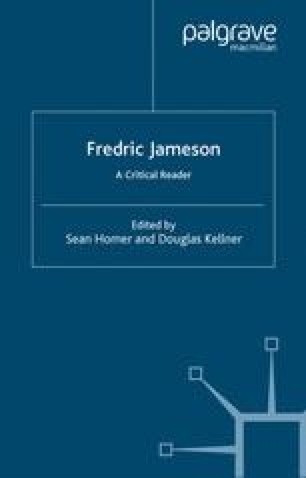

His interest in Sartre led Jameson to intense study of Marxist literary theory.

It nevertheless earned Jameson a position at Harvard University, where he taught during the first half of the 1960s.

Jameson's dissertation, though it drew on a long tradition of European cultural analysis, differed markedly from the prevailing trends of Anglo-American academia (which were empiricism and logical positivism in philosophy and linguistics, and New Critical formalism in literary criticism). The occasional Marxian aspects of Sartre's work were glossed over in this book Jameson would return to them in the following decade. Jameson's work focused on the relation between the style of Sartre's writings and the political and ethical positions of his existentialist philosophy. Jameson would follow in these steps, examining the articulation of poetry, history, philology, and philosophy in the works of Jean-Paul Sartre. Auerbach's concerns were rooted in the German philological tradition his works on the history of style analyzed literary form within social history. This was already apparent in Jameson's doctoral dissertation, published in 1961 as Sartre: the Origins of a Style.

He returned to America the following year to pursue a doctoral degree at Yale University, where he studied under Erich Auerbach.Īuerbach would prove to be a lasting influence on Jameson's thought. Īfter graduating in 1954 from Haverford College, where his professors included Wayne Booth, he briefly traveled to Europe, studying at Aix-en-Provence, Munich, and Berlin, where he learned of new developments in continental philosophy, including the rise of structuralism. Jameson was born in Cleveland, Ohio, and graduated in 1950 from Moorestown Friends School. In 2012, the Modern Language Association gave Jameson its sixth Award for Lifetime Scholarly Achievement. Jameson is currently Knut Schmidt-Nielsen Professor of Comparative Literature and Romance Studies (French) and the director of the Center for Critical Theory at Duke University. Jameson's best-known books include Postmodernism, or, The Cultural Logic of Late Capitalism (1991) and The Political Unconscious (1981). He is best known for his analysis of contemporary cultural trends, particularly his analysis of postmodernity and capitalism. Fredric Jameson (born April 14, 1934) is an American literary critic, philosopher and Marxist political theorist.


 0 kommentar(er)
0 kommentar(er)
